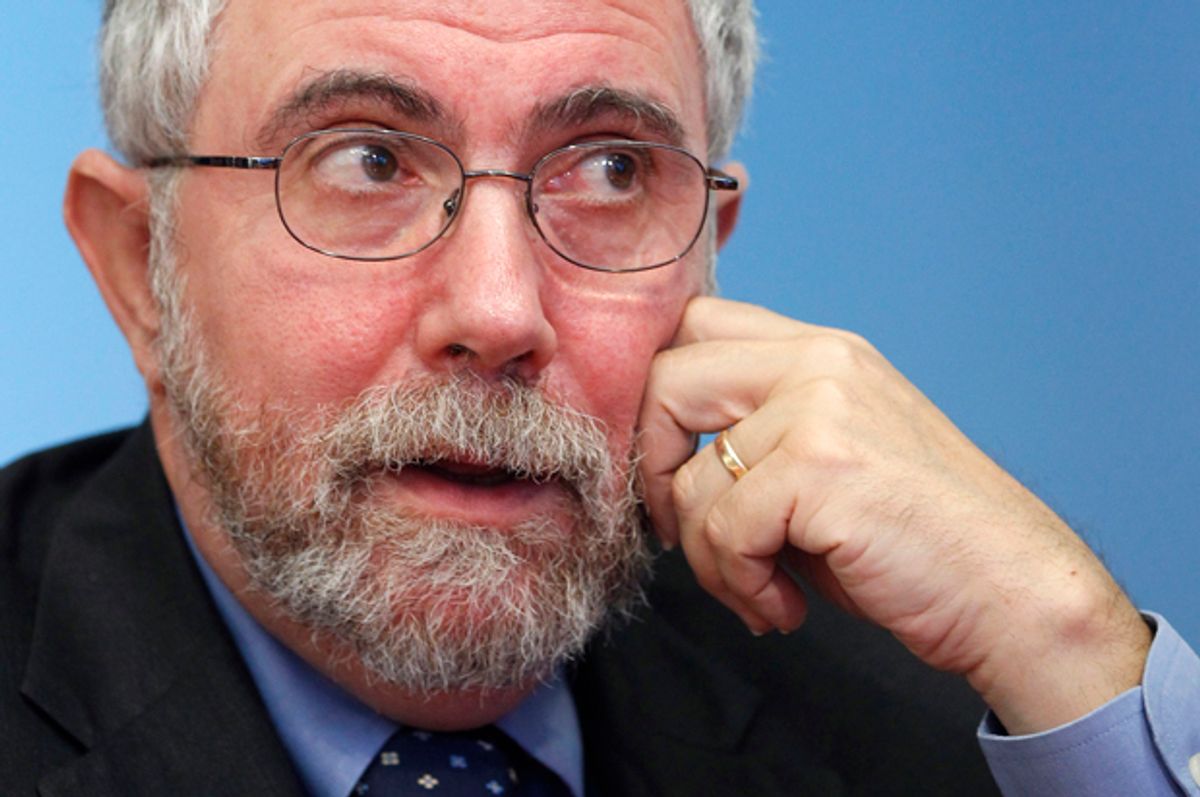New York Times columnist Paul Krugman argued on Friday that "seriously bad ideas...have a life of their own" and "rule our world" because they "appeal to the prejudices of Very Serious People." He defined a "seriously bad idea" as one which "invoke[s] big causes to explain big events" and "absolve[s] corporate interests and the wealthy from responsibility for what went wrong, and call for hard choices and sacrifice on the part of the little people."
For example, the recent economic disaster" is a big event, but explaining its actual cause -- "an inadequately regulated financial industry run wild" -- isn't a sufficiently "big," nor does it "absolve corporate interests and the wealthy," so instead "Very Serious People" declare that "government spending that helps the less fortunate [is the] crucial cause of our economic problems."
Such an explanation fits all of Krugman's criteria for a "seriously bad idea," and in England -- from which he filed this column -- it "still reigns supreme."
In particular, one important factor in the recent Conservative election triumph was the way Britain’s news media told voters, again and again, that excessive government spending under Labour caused the financial crisis.
It takes almost no homework to show that this claim is absurd on multiple levels. For one thing, the financial crisis was global; did Gordon Brown’s alleged overspending cause the housing busts in Florida and Spain? For another, all these claims of irresponsibility involve rewriting history, because on the eve of crisis nobody thought Britain was being profligate: debt was low by historical standards and the deficit fairly small. Finally, Britain’s supposedly disastrous fiscal position has never worried the markets, which have remained happy to buy British bonds despite historically low yields.
Nonetheless, that’s the story, generally reported not as opinion but as fact. And the really bad news is that Britain’s leaders seem to believe their own propaganda. On Wednesday, George Osborne, the chancellor of the Exchequer and the architect of the government’s austerity policies, announced his intention to make these policies permanent. Britain, he said, should have a law requiring that the government run a budget surplus — with current revenue paying for all spending, including investment outlays — when the economy is growing.

Shares